
– cover, Canadian Business, Jan 2012, for the record. [hat-tip ‘J’]
Featured article ‘Prediction: The Canadian housing market will crash’, by Joe Castaldo, 12 Jan 2012, was recently discussed on these pages [VREAA 21 Jan 2012].


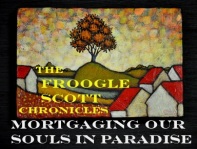




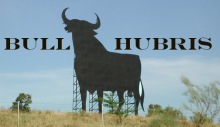




Most Recent Comments:
- Maria Ter on “Over the years, we refinanced our home a few times to pay off our debts. Now we’re selling our home as we can’t keep up with mortgage payments. In this market, we’re not sure if we’ll break even.”
- space889 on “I’m surprised that everyone else is so surprised to hear anyone talk about a housing bubble” – “Canadian RE 2021 worse than U.S. bubble at 2006 peak” – David Rosenburg
- amitamv on “I’m surprised that everyone else is so surprised to hear anyone talk about a housing bubble” – “Canadian RE 2021 worse than U.S. bubble at 2006 peak” – David Rosenburg
- Keith on “I’m surprised that everyone else is so surprised to hear anyone talk about a housing bubble” – “Canadian RE 2021 worse than U.S. bubble at 2006 peak” – David Rosenburg
- Judy Green on “I’m surprised that everyone else is so surprised to hear anyone talk about a housing bubble” – “Canadian RE 2021 worse than U.S. bubble at 2006 peak” – David Rosenburg
- space889 on “I’m surprised that everyone else is so surprised to hear anyone talk about a housing bubble” – “Canadian RE 2021 worse than U.S. bubble at 2006 peak” – David Rosenburg
- Seeking Knowledge on “I’m surprised that everyone else is so surprised to hear anyone talk about a housing bubble” – “Canadian RE 2021 worse than U.S. bubble at 2006 peak” – David Rosenburg
- vreaa on “I’m surprised that everyone else is so surprised to hear anyone talk about a housing bubble” – “Canadian RE 2021 worse than U.S. bubble at 2006 peak” – David Rosenburg
- space889 on “I’m surprised that everyone else is so surprised to hear anyone talk about a housing bubble” – “Canadian RE 2021 worse than U.S. bubble at 2006 peak” – David Rosenburg
- space889 on “I’m surprised that everyone else is so surprised to hear anyone talk about a housing bubble” – “Canadian RE 2021 worse than U.S. bubble at 2006 peak” – David Rosenburg
- Conflarian on “I’m surprised that everyone else is so surprised to hear anyone talk about a housing bubble” – “Canadian RE 2021 worse than U.S. bubble at 2006 peak” – David Rosenburg
- Conflarian on “I’m surprised that everyone else is so surprised to hear anyone talk about a housing bubble” – “Canadian RE 2021 worse than U.S. bubble at 2006 peak” – David Rosenburg

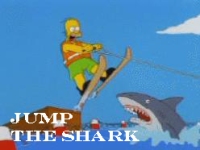
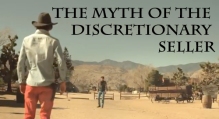
-
Type of Anecdote
- 01. He Said, She Said (248)
- 02. Profiting from the Boom (446)
- 03. Changed my Life (106)
- 04. Changed my Career (39)
- 05. Where do Buyers get the money? (1,111)
- 06. Held my Nose and Leapt (97)
- 07. Avoiding Vancouver (378)
- 08. Overextended Buyers (1,198)
- 09. Delaying Buying (316)
- 10. Demoralized Renters? (367)
- 11. Regrets about Investing in RE (417)
- 12. Effects of Development (279)
- 13. 2010 Olympics Related (74)
- 14. Social Effects of the Boom (1,266)
- 15. Misallocation of Resources (967)
- 16. Missed The Boat? (237)
- 17. The Froogle Scott Chronicles (27)
- 18. Spot The Speculator (174)
- 19. BlastRadiusPostCards (17)
- 20. The Limitless Demand Argument For Ongoing Market Strength (70)
- 21. Vancouver RE-Verse [Found Poems] (8)
- 22. RE References In Popular Culture (45)
- 23. Jumping The Shark (1)
- 24. Policies On Housing (11)
- 25. Epigrams For The Bubble (1)
- 26. Premature Calls Of "Bottom" (3)
- 27. Seller Panic (3)
- 28. Erroneous Causation Theories For Falling Prices (7)
- 29. Bubblespeak (1)
- Uncategorized (177)








Blogroll
- 01 Vancouver Condo Info
- 02 AmericaCanada [retired, no archive]
- 03 Housing Analysis
- 04 RealEstateTalks BC
- 05 Vancouver RE and then some
- 06 Whispers from the Village on the Edge of the Rainforest
- 07 Greater Fool
- 08 Canada Bubble
- 09 Rob Chipman's blog
- 10 YatterMatters
- 11 condohype [retired; archives available]
- 12 vancouver (un)real estate
- 13 Agent Will's Stats [retired]
- 14 Landlord Rescue
- 15 The Economic Analyst
- 16 Canadian Housing Price Charts
- 17 Hoodsurf [retired Jun 2011]
- 18 World Housing Bubble
- 19 Vancouver Price Drop
- 20 North American Economics
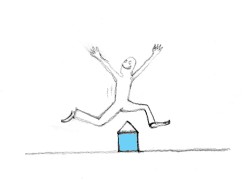

-
Latest Anecdotes:
- “I’m surprised that everyone else is so surprised to hear anyone talk about a housing bubble” – “Canadian RE 2021 worse than U.S. bubble at 2006 peak” – David Rosenburg
- “Always the Right Time to Buy!” – Cheap Rope For Vancouver RE Buyers
- Mortgage Squeeze Anecdotes – “Two days ago my mortgage holder called and told me that, after 22 years, they would not renew my mortgage.”
- Wow! – CMHC CEO Evan Siddall Points To Unsustainable Debt & Calls For 18% Drop In Housing Prices – [which of course would mean a lot more off]
- Prediction: Vancouver RE Prices Will Not Crash… Unless They Crash
- Pre-Existing Disease – COVID Economic Stress Uncovers Longstanding Vulnerability in Vancouver RE Market
- COVID-19 the Pin for the Highly Debt-Leveraged Vancouver RE Bubble?
- Vancouver Sun Headline – ‘Five more Metro Vancouver homeowners hosed in a falling market’
- Vancouver RE Prices – Where is the Support?
- Money Laundering & Vancouver Home Prices
- “Psychologically, They’re Ill-Prepared” – “Canadian Chaos Looms”
- Keeping Up With Other Bubbles – Australia Suddenly Not Running Out Of Land Anymore – “Aussie House Prices Could Halve”
- Watershed? or Dam-Collapsing? – Mainstream Media Quoting Vancouver RE Bear-Tweets, and Predicting Shrinking Realtor Numbers – “What they’re used to is not what real estate is typically like.”
- “Within artistic communities in Vancouver it’s hard to spend more than 15 minutes at a social gathering without talking about the cost of rent or knowing of someone who is being evicted.”
- Macleans Wakes Up – ‘This is how Canada’s housing correction begins’ – “We’re not ready for what happens next”
- Vancouver Detached – Sales Down, Prices Down
- Bloomberg Calls Vancouver ‘The City That Had Too Much Money’
- “Our family loves Vancouver, but we’re leaving because the struggle to live here is simply too hard”
- Tendency Towards Corruption Is Inevitable – How Do We Minimize Its Existence?
- Hard Earned Home Savings? Hardly.
- “You know your real estate is in bad shape when there is a game app that displays Vancouver’s Science World and teaches you how to be a money hungry real estate developer.”
- “It’s sinking in that Vancouver is sinking” – “Westside prices have fallen 17% from 2016 & 11% this year; sales volumes down by 80%; 3 years worth of >$3 Million inventory”
- The Carrion Have The Carcass – “I’ve lived in Vancouver since 1968; my wife was born here; we are about to leave; this town has priced us out. All that is left are the investors and the very rich visitors.”
- All Time High, And Climbing… $251 Billion Personal Debt Borrowed Against Canadian Homes
- “I asked a group of young people how many of them thought they’d be in Vancouver in two years, and 17 out of 18 said that they would be moving.” – Mayoral Candidate Shauna Sylvester
- Off-The-Charts Unaffordable – Greater Vancouver Price-To-Income Ratio 28 (average home price: $1,071,800, median one-person income: $38,164)
- Conflicts of Interest – BC MLAs Heavily Invested In RE Making Laws About RE
- File Under Tags: ‘Tolerant Vancouver Renter’ and ‘YouGottaBeKiddinMe’
- Vancouver “an international housing-affordability basket case” with “RE bubble risk the worst in the world” – Maclean’s
- Vancouver Economy Over-Dependent On Debt Spending
- Vancouver City Councillors Wake Up To ‘Fierce Speculative Demand’ – “There is significant evidence speculative investment has the biggest impact on housing costs in the city.”
- The Dance Around Foreign Ownership of Vancouver RE
- Information From Outside The Vancouver RE Bubble – U.S. Senator Lives In (don’t laugh) $500K Home
- “The Position Remains Unfilled”
- Jessica Barrett – ‘I Left Vancouver Because Vancouver Left Me’ – “Like Living On An Abandoned Film Set.”
- “I’ve thought since early 2010 that Vancouver housing was in a bubble, and have refused to buy a house for this reason. I’ve felt that the risk of mean-reversion was far higher than the risk of missing the upside.”
- “It is very difficult to live here.”
- “We want young people to buy Real Estate.” – Vancouver’s Mayor
- “Vancouver RE Balloon Pricked; Median Price Detached Home Down >$500,000 to $1.7 million; Prices Need To Be Slashed”
- Detached Price Trend Remains Up, For Now. Speculators Hold Their Breath?
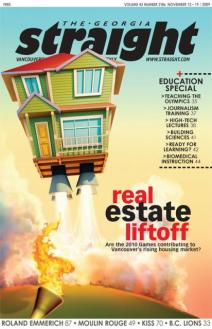

Follow vreaa on twitter
Tweets by vreaa


VREAArchives
- March 2021
- June 2020
- May 2020
- April 2020
- December 2019
- July 2019
- May 2019
- April 2019
- February 2019
- January 2019
- December 2018
- October 2018
- September 2018
- June 2018
- May 2018
- April 2018
- March 2018
- February 2018
- January 2018
- December 2017
- November 2017
- October 2017
- September 2017
- August 2017
- June 2017
- May 2017
- April 2017
- March 2017
- February 2017
- January 2017
- December 2016
- November 2016
- October 2016
- September 2016
- August 2016
- July 2016
- June 2016
- May 2016
- March 2016
- February 2016
- January 2016
- December 2015
- November 2015
- October 2015
- September 2015
- August 2015
- July 2015
- June 2015
- May 2015
- April 2015
- December 2014
- October 2014
- September 2014
- August 2014
- July 2014
- June 2014
- May 2014
- April 2014
- March 2014
- February 2014
- December 2013
- July 2013
- June 2013
- May 2013
- April 2013
- March 2013
- February 2013
- January 2013
- December 2012
- November 2012
- October 2012
- September 2012
- August 2012
- July 2012
- June 2012
- May 2012
- April 2012
- March 2012
- February 2012
- January 2012
- December 2011
- November 2011
- October 2011
- September 2011
- August 2011
- July 2011
- June 2011
- May 2011
- April 2011
- March 2011
- February 2011
- January 2011
- December 2010
- November 2010
- October 2010
- September 2010
- August 2010
- July 2010
- June 2010
- May 2010
- April 2010
- March 2010
- February 2010
- January 2010
- December 2009
- November 2009
- October 2009
- September 2009
- August 2009
- June 2009
- May 2009
- April 2009
- March 2009
- February 2009
- January 2009
- October 2008
- September 2008
- July 2008
- June 2008
- May 2008
- April 2008
- March 2008
- February 2008
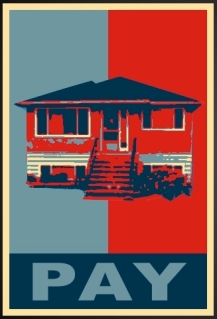
Tags
affordability Alberta Anecdotes Asia Audio anecdote Australia Bailout Banks Bears blogs British Columbia Bubble Bulls buyers Canada Capitulation Caveat Children China CMHC Construction Crime Debt Densification Developers Dreams Earthquake Economy Edmonton Employment Fear Foreclosure Foreign buyers FTBs Fundamentals Government Housing Incomes Interest Rates Ireland Landlords Life Market_Timing Media Mortgage brokers Okanagan Olympics ontario opinion Ottawa Ownership Prediction Rain Real Estate Realtors Relationships Renos Rent Retirement RE_ATM Seattle sellers Sentiment Speculators Stories Tax Technical Analysis Toronto UBC UK US Vancouver Victoria Visual Anecdote Whistler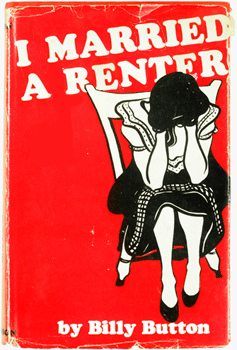

Now I’m wondering if the bubble won’t keep inflating. I read this article last week, but wasn’t expecting to see it on the cover. Usually when a major publication tries to call an end to the boom with a big cover story, it means the boom still has some legs. Normally the crash happens only when EVERYONE in the major financial press has given up calling for it.
I recall a similar cover on Time Magazine in 1998 at the height of the Asian crisis. Something like, “Are the Good Times Over”? Of course the stock market and the US economy kept roaring ahead for another 2 years, finally crashing in 2000-01.
Who knows? Could be the writing is already on the wall, and these guys are just pointing it out.
The magazine cover indicator, seems to date from, or be most famous for, the ‘Death of Equities’ Business Week cover in August 1979.
It doesn’t seem to hold much water for local RE (witness the Classic top-of-the-market Georgia Straight cover down near the bottom of the right hand sidebar).
perma-bear Joe Castaldo. If you listened to Joe back in 2010 when he warned you away from real estate you’d have missed out on 30-35% appreciation.
“Why buying a house may be a bad investment
Georgetown Real Estate
By Joe Castaldo, Canadian Business Online
Monday, March 15, 2010 provided by Canadian Business”
http://www.georgetownon.ca/index.php/real-estate/georgetown-real-estate/442-why-buying-a-house-may-be-a-bad-investment
haha, “back in 2010”, as if that was ages ago! Anyone who thinks 30-35% appreciation over one or two years is at all normal, or sustainable, is truly fooling themselves.
What’s the problem?
Joe was correct in 2010 and he’s still correct now, in 2012.
A bubble can only deflate once. When you’re in it, you can be sure it’s present, but you can’t be sure when it’ll eventually pop.
Only in bubblicious Vancouver F1. By the way, Castaldo is a journalist and simply reports others’ opinions. It appears that you regard anyone who has a bearish view on RE as a perma-bear because of your own small narrow-minded experience. At least Canadian Business provides predictions with well discussed rationale. You on the other hand, are great at “predicting” what happened over the past 10 years which is completely useless.
That 30 – 35% appreciation means what exactly? To realize it one needs to sell the home first. If that is your residence then you need to buy another home that has risen by the same percentage. Home equity is phony wealth.
As for house-flippers, just ask our neighbors to the south how well off house-flippers are these days.
Or you can sell and rent for a while, or downsize for a few years. Buyers are encouraged to buy early and often, trading up the “property ladder.” This would be the equivalent of what’s called “pyramiding” in other investments, except that RE transaction costs are so high that it serves to enrich RE and mortgage brokers in this case.
i think the majority who own don’t care about appreciation whatsoever. A 35% appreciation just increases property taxes right? The only loser in that case is someone not in the market, as the access costs have been elevated.
Finally, someone in the media with enough balls to print the truth.
someone who prints your truth
The one thing that is never known is the exact point of a bubble popping. The key issue is to identify the bubble as early as possible.
Once you identify that it is a bubble, then you must accept you are now just gambling, and the reality is that the house nearly always wins in the long run. Only 1% of people represent the house. Unfortunately if you want to gamble then as part of the 99% you will lose
Everybody wants to sell high! Trouble is by the time the bubble pops, you now just become a casualty figure, because you now become part of the flood.
Take a quick look at Vancouver property listings v sales and you can see the herd heading for the exit. Most will get slaughtered.
The bigger the bubble, the greater the number of buyers, the greater the bang, the greater the number of sellers, and the larger the falls, all fighting for the small number of buyers, many in no mood to save you.
Quite the focus on the Canadian real-estate balloon lately.
Here’s some coverage from the Economist.
http://www.economist.com/node/21546057
Thanks Nonymouse.
“However, the state has refused to use its most powerful tool. To protect business investment, the central bank has made clear that it plans to keep interest rates low. As long as money stays cheap, the balloon could get bigger—perhaps big enough to become a fully fledged bubble after all.”
Yep.